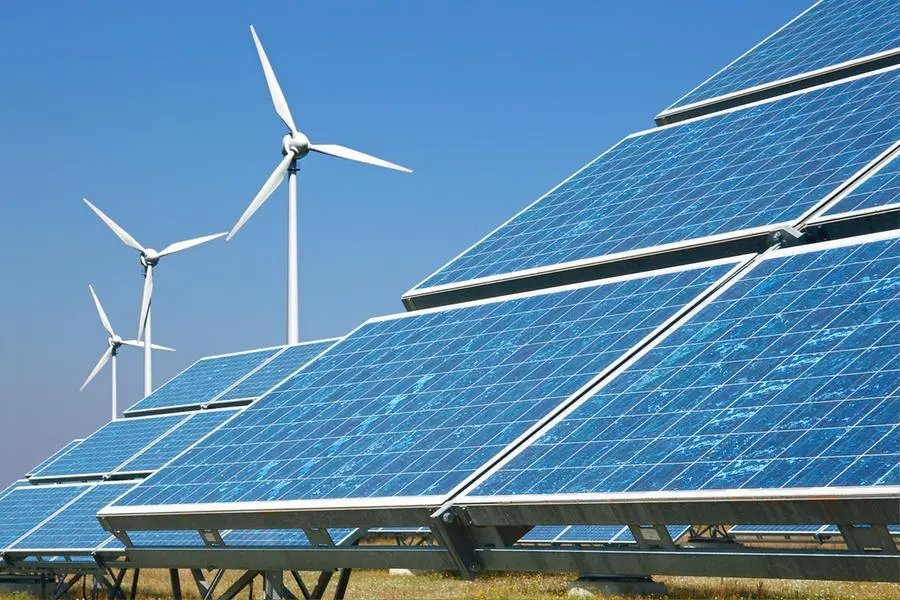PHOTO
Uzbekistan, as a country with about 320 sunny days a year, has the highest potential in the development of solar energy, the total potential of which is 2,058 billion kWh.
The Surkhandarya, Bukhara and Kashkadarya regions have the greatest potential in this direction, where the average output per panel is 1,680-1,700 kW. h per year. The average level of solar radiation is in Karakalpakstan, Syrdarya and Tashkent regions, and the lowest is in the regions of the Fergana Valley.
Currently, 8 public-private partnership projects are being implemented to develop the potential of solar energy with the production of 4.3 billion kWh (1.6 GW) for $1.3bn.
Uzbekistan also has a high potential of wind energy in the north-western and south-western parts of the republic, the gross potential of which, according to various estimates, can range from 22 to 4,090 billion kWh, technical more than 9.9 billion kWh, the highest in Karakalpakstan (4.4 billion kWh), Navoi (2.9 billion kWh), Bukhara (1 billion kWh) regions. Realising the potential of wind energy will save 3.3 billion cubic meters of natural gas per year.
Recently, 7 PPP projects have been implemented in this direction with the production of 11.3 billion kWh (3.1 GW) worth $3.6bn.
It is worth noting that special attention is being paid to the development of “green economy”, in particular, “green energy” in our country. In this regard, a bold step was taken to increase the volume of electricity production based on renewable energy sources.
In particular, 21 agreements were signed in the last 4-5 years with international companies on the construction of solar and wind power plants with a total capacity of 7,047 megawatts, and 5 contracts for the transportation of electricity produced for their own needs with a total capacity of 2,030 megawatts.
In order to ensure the implementation of these projects, 15 decrees were signed by the President of the Republic of Uzbekistan.
In particular, 19 solar photovoltaic projects with a total capacity of 3,977 megawatts and 7 wind power plants with a total capacity of 3,100 megawatts are being implemented.
These investment projects are carried out by ACWA Power of Saudi Arabia, “Masdar” of the United Arab Emirates, “Total Eren”, Voltalia of France, “Gezhouba Overseas Investment Group” of China and “Tepelen Group AG” of Switzerland.
The total cost of these projects is more than $9bn, all of which will be carried out by foreign companies at the expense of direct investments.
As a result of the efforts, the first 100 megawatt-capacity large solar photovoltaic station in Uzbekistan was launched in Karmana District of Navoi region in August, 2021.
Likewise, the second 100 megawatt-capacity solar photovoltaic plant began operations in Nurabad District of Samarkand region in May 2022.
Moreover, in 2023-2024, 7 solar and wind power plants with a total capacity of 2,797 megawatts will be put into operation, including in Sherabad of Surkhandarya region, Gallaorol of Jizzakh region, Kattakurgan of Samarkand region, Tomdi of Navoi region, Yukori Chirchik districts of Tashkent region, as well as in Kashkadarya, Bukhara and Namangan regions.
In 2025, 2 wind farms with a capacity of each one 500 megawatts will be commissioned in Peshku and Gijduvan districts of Bukhara region and in 2026, 4 wind farms with a total capacity of 1,600 megawatts will be commissioned in the Republic of Karakalpakstan.
It should be noted that as a result of systematic work, by 2026, solar and wind power plants with a total capacity of more than 8,000 megawatts, hydroelectric power plants with a capacity of 868 megawatts will begin to work in Uzbekistan.
In addition, in February 16, 2023 PD-57 was adopted by the president of the Republic of Uzbekistan “On measures to accelerate the introduction of renewable energy sources and energy-saving technologies in 2023”, according to which by the end of 2023 the total capacity of 1,8 GW of renewable energy devices are planned to be put into operation.
Another historical step was taken in the field.
For the first time in the history of Uzbekistan, the practice of state purchase of electricity produced using solar panels installed in the population’s household was established.
When installing solar panels and solar water heating devices in apartments, a number of benefits are being introduced to individuals.
Abdullajon Otabaev is the Director of the department of the Ministry of Energy of Uzbekistan
© Dar Al Sharq Press, Printing & Distribution. All Rights Reserved. Provided by SyndiGate Media Inc. (Syndigate.info).





















